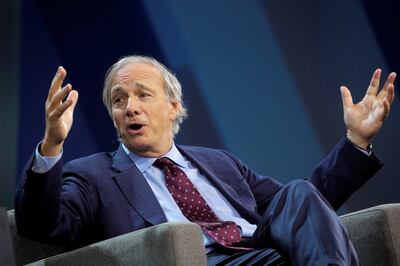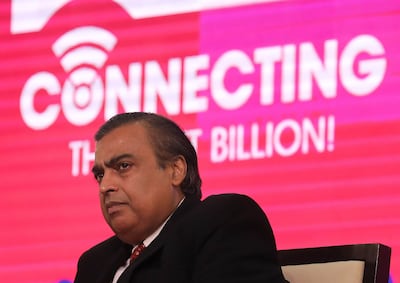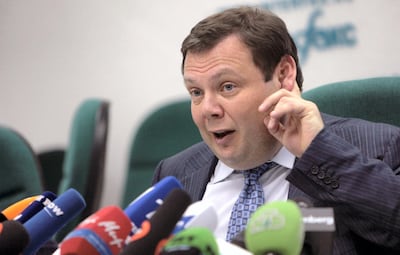Adam Neumann
WeWork co-founder Adam Neumann is remaking himself as a residential kingpin, purchasing stakes in thousands of apartments across the US.
He sees his role as landlord as part of a larger business strategy that’s yet to be revealed, said a person familiar with his holdings. Since Mr Neumann was ousted from WeWork in 2019, he has amassed dozens of investments in start-ups and laid roots for new ventures of his own, said the person, who asked not to be identified because the plans are unfinished.
The billionaire and entities tied to him have purchased stakes in more than 4,000 apartments valued in excess of $1 billion, the person said. Many of the units are located in southern US cities including Atlanta and Miami.
A spokesman for Mr Neumann declined to comment. The real estate investments were reported by The Wall Street Journal on January 4.
“Since the spring of 2020, we have been excited about multifamily apartment living in vibrant cities where a new generation of young people increasingly are choosing to live,” DJ Mauch, a partner at Mr Neumann’s family office, told The Wall Street Journal. “We’re excited to play a role in that future.”
Mr Neumann sought to redesign the modern workplace with WeWork, an office space rental company he started. It eventually became known as much for its failed initial public offering and fleeting $47bn valuation.
At WeWork, Mr Neumann explored an interest in residential spaces with a business called WeLive. The company opened a small number of communal apartments, sort of like college dorms for adults. WeLive didn’t go very far and was closed after the company hit turbulence.
The co-working start-up nearly ran out of cash in 2019 after its IPO went sideways. The IPO prospectus showed mounting losses and myriad conflicts of interest, including real estate transactions between Mr Neumann and the company that drew fire from prospective investors.
WeWork finally went public late last year at a reduced valuation of $9bn. It has since fallen to $6.6bn. Mr Neumann retains a sizeable stake and has a net worth of $2.2bn, according to the Bloomberg Billionaires Index.

Ray Dalio
Hedge fund billionaire Ray Dalio has renewed his warning about holding cash and bonds amid the ongoing, pandemic-fuelled increase in debt creation and monetisation in the US.
“This printing of money and buying of debt assets has driven interest rates so low that cash and bonds are stupid to own,” he wrote in a post on LinkedIn.
“I think one should consider minimising one’s ownership of cash and bonds in dollars, euros, and yen … and putting funds into a highly diversified portfolio of assets, including stocks and inflation-hedge assets, especially in countries with healthy finances and well-educated and civil populations that have internal order.”
“The three major reserve currency empires – the United States, Europe, and to a lesser extent Japan – are in poor financial shape.”
Mr Dalio, the founder of Bridgewater Associates, said it would be a good time to borrow in those currencies.
While Mr Dalio has long been known for his interest in China and its rise as a global power, he said the current economic paradigm is being driven just as much by internal conflicts over wealth and values in the US that have not been seen since the 1930s.
“There is great internal conflict going on in the United States now, which makes it a risky place,” he wrote. “For example, it is entirely possible that neither side will accept losing the 2024 election.”
In September, Mr Dalia said regulators would shut down Bitcoin if the cryptocurrency becomes too successful.
“I think, at the end of the day, if it’s really successful … [regulators] will try to kill it,” Mr Dalio told delegates at the Salt Conference, an annual gathering of hedge fund managers in New York City.
“But that doesn’t mean it doesn’t have a place,” he said, according to reports by the Financial Times and Bloomberg.

Mukesh Ambani
Billionaire Mukesh Ambani’s Reliance Jio Infocomm, India’s largest mobile phone carrier, is planning its biggest ever rupee bond sale as it targets gains in market share.
The company is seeking commitments for as much as 50bn Indian rupees ($671 million) of notes maturing in five years at a coupon of 6.2 per cent, according to people familiar with the matter. Jio last tapped the local-currency bond market in July 2018 and is planning to use the proceeds from the current proposed deal to refinance financial liabilities.
Jio’s entry into the wireless market in 2016 with free calls and ultra-cheap data unleashed a tariff war in the country and shrank the telecom space from a dozen players to three private sector operators as others exited, merged or went bankrupt.
The top-rated firm is coming to the debt market as the nation’s central bank drains excess liquidity from the banking system as it normalises policy, pushing borrowing costs for AAA-graded five-year corporate debt to near a nine-month high.
Jio is preparing to roll out 5G services in India this year after buying airwaves worth almost $8bn in March. It was the top bidder in the latest spectrum auctions, underscoring its intent to retain its edge over rivals.
Jio’s parent Reliance Industries has also hired banks to arrange a series of fixed-income investor calls from January 4 for a potential multi-tranche dollar bond offering.

Mikhail Fridman
Russian billionaire Mikhail Fridman’s Luxemburg-based investment vehicle LetterOne has called for the dismissal of four board members at Turkcell Iletisim Hizmetleri as it pushes for a governance overhaul at Turkey’s largest wireless carrier.
Replacing Afif Demirkiran, Nail Olpak, Huseyin Arslan and Julian Horn-Smith was an important step in improving Turkcell’s governance to attract international investors, LetterOne, which owns 19.8 per cent of Turkcell, said in a statement on January 4. It has proposed four unaffiliated directors as replacements, according to the statement.
“We want the company to be a beacon for Turkey in the international financial markets,” LetterOne managing director Ben Babcock said.
In November, LetterOne said Turkcell could deliver “substantially more” value and become a market-leading digital telecom company if it enacted changes including setting up a new board committee to review costs, asset monetisation and capital allocation.
Mr Babcock said he expected broad shareholder support for these resolutions at the company’s next annual general meeting, a date for which has not yet been set.
“We sought to engage constructively with the Turkcell board to address our legitimate concerns but the board has chosen not to engage with us,” Mr Babcock said in the statement.
Turkcell said previously that it welcomed feedback from its investors but disagreed with LetterOne. A representative for Turkcell declined to comment.
LetterOne worked with recruitment firm Korn Ferry to identify replacements for the four board members, it said. The investment firm is Turkcell’s second-largest investor after Turkey’s sovereign wealth fund.
Shares in Turkcell have risen 20 per cent in Istanbul trading over the past 12 months, giving it a market value of about 43bn Turkish lira ($3.2bn).
Mr Fridman, who has a net worth of $14.1bn, is the largest shareholder of Alfa Group, an investment company that owns stakes in Alfa Bank, Russia's fifth-biggest lender, according to the Bloomberg Billionaires Index.






